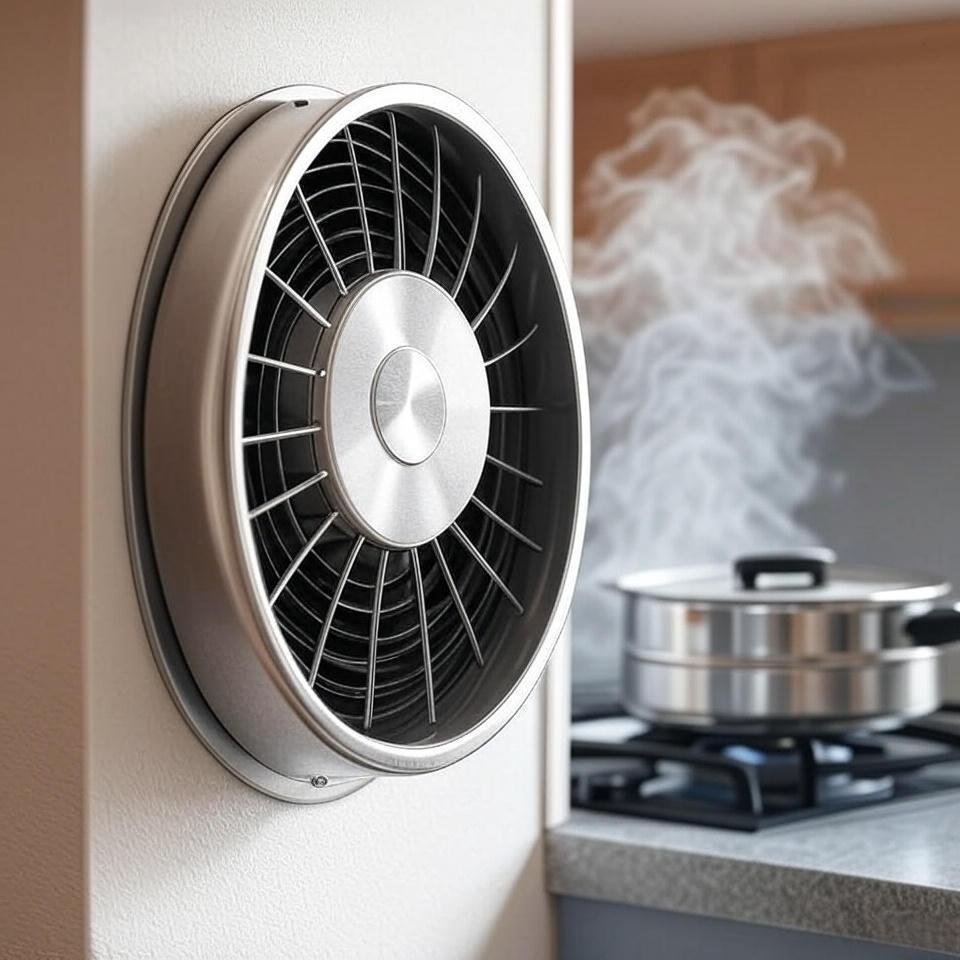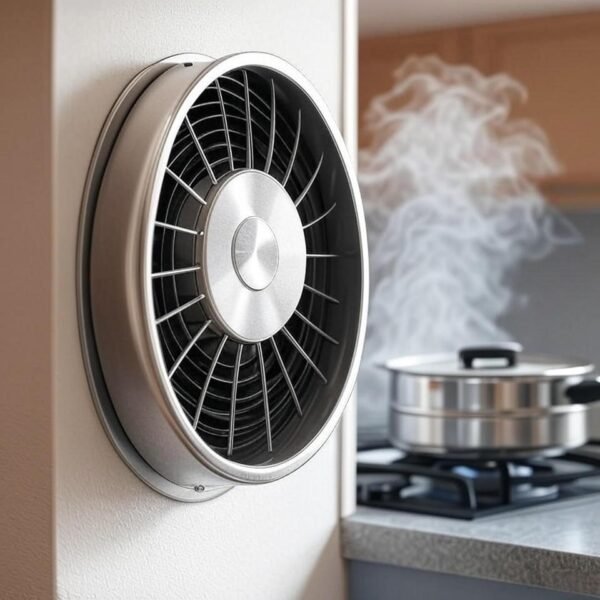
How to Choose the Perfect Exhaust Fan for Your Kitchen
A well-functioning exhaust fan for kitchen is essential for maintaining good air quality, removing smoke, grease, and odors, and preventing moisture buildup. Whether you’re renovating your kitchen or simply upgrading your ventilation system, selecting the right exhaust fan is crucial.
In this guide, we’ll cover:
✔ Why You Need a Kitchen Exhaust Fan
✔ Types of Exhaust Fans for Kitchen
✔ Key Features to Consider
✔ Installation & Maintenance Tips
Why You Need an Exhaust Fan for Kitchen
Cooking releases smoke, grease, and strong odors that can linger in your home. Without proper ventilation, these particles can settle on surfaces, leading to:
Poor indoor air quality (affecting health)
Grease buildup on walls and cabinets
Excess humidity, promoting mold growth
Unpleasant cooking smells
An exhaust fan for kitchen helps eliminate these issues by pulling contaminated air outside or filtering it before recirculation.
Types of Exhaust Fans for Kitchen
1. Wall-Mounted Exhaust Fans
Installed directly on an exterior wall
Ideal for kitchens without ducted range hoods
Best for small to medium-sized kitchens
2. Ceiling-Mounted Exhaust Fans
Installed in the ceiling, venting air through the roof
Great for kitchens with limited wall space
Requires professional installation
3. Inline Exhaust Fans
Placed within ductwork (hidden from view)
Powerful and quiet operation
Suitable for large kitchens
4. Range Hood Exhaust Fans
Mounted above the stove
Includes built-in lighting and filters
Available in ducted & ductless models
5. Window Exhaust Fans
Fits into kitchen windows
Budget-friendly and easy to install
Best for temporary or small kitchens
Key Features to Consider When Buying an Exhaust Fan for Kitchen
 Airflow Capacity (CFM – Cubic Feet per Minute)
Airflow Capacity (CFM – Cubic Feet per Minute)
Small kitchens (≤ 75 sq ft): 50-100 CFM
Medium kitchens (76-150 sq ft): 100-150 CFM
Large kitchens (150+ sq ft): 150+ CFM
 Noise Level (Sones)
Noise Level (Sones)
< 1.0 sone (Very quiet)
1.0-3.0 sones (Moderate noise)
> 3.0 sones (Loud)
 Energy Efficiency
Energy Efficiency
Look for ENERGY STAR® certified models
DC motors consume less power than AC motors
 Venting Options
Venting Options
Ducted (Vented Outside) – More effective
Ductless (Recirculating) – Uses charcoal filters
 Additional Features
Additional Features
Adjustable speed settings
Built-in lighting
Humidity sensors
Easy-to-clean filters
Installation & Maintenance Tips
Installation Guide
Choose the right location (near the stove for best results).
Ensure proper ductwork (minimize bends for better airflow).
Hire a professional if electrical/wiring work is needed.
Maintenance Tips
Clean filters monthly (grease buildup reduces efficiency).
Check ducts annually for blockages.
Replace charcoal filters (if using a ductless model) every 3-6 months.
Final Thoughts
Investing in the best exhaust fan for kitchen improves air quality, reduces odors, and keeps your cooking space fresh. Consider CFM, noise level, and venting type before purchasing.
For heavy cooking, a high-CFM range hood is ideal, while a wall or ceiling-mounted fan works well for smaller kitchens. Regular maintenance ensures long-term performance.
Need help choosing? Check our top picks above and enjoy a cleaner, healthier kitchen today!
FAQs About Exhaust Fans for Kitchen
Q: How often should I run my kitchen exhaust fan?
A: Run it during and 10-15 minutes after cooking to clear all smoke and odors.
Q: Can I install a kitchen exhaust fan myself?
A: Simple models (window/wall-mounted) can be DIY, but ducted systems may require professional help.
Q: What’s better: ducted or ductless exhaust fans?
A: Ducted fans are more effective since they vent air outside, while ductless models recirculate filtered air.
Q: How do I reduce exhaust fan noise?
A: Choose a model with < 1.0 sone rating or install an inline exhaust fan (placed further in the duct).
By following this guide, you’ll find the best exhaust fan for kitchen that fits your needs. Share this article if you found it helpful!
#KitchenExhaustFan #Ventilation #HomeImprovement #KitchenUpgrade


